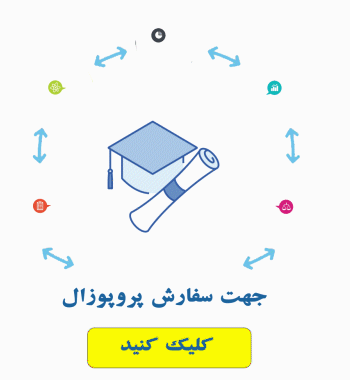 عنوان پروپوزال: بررسی تاثیر بازاریابی رابطه مند بر ارزش ویژه برند بانک ها: مطالعه موردی بانک پاسارگارد استان تهران
عنوان پروپوزال: بررسی تاثیر بازاریابی رابطه مند بر ارزش ویژه برند بانک ها: مطالعه موردی بانک پاسارگارد استان تهران
 رشته تحصیلی: بازاریابی
رشته تحصیلی: بازاریابی
 مقطع: ارشد
مقطع: ارشد
تعداد صفحات: ۲۳ صفحه
![]() فرمت: Word
فرمت: Word
[stextbox id=”grey” caption=”فهرست آیتم های پروپوزال” collapsing=”true” mode=”js” direction=”rtl” shadow=”false”]
- بیان مساله
- پیشینه پژوهش
- فرضیات پژوهش
- فرضیه اصلی
- فرضیات فرعی
- سوالات پژوهش
- سوال اصلی
- سوالات فرعی
- اهداف پژوهش
- هدف اصلی
- اهداف فرعی
- اهداف کاربردی
- روش پژوهش
- روش جمع آوری اطلاعات
- روش تجزیه و تحلیل اطلاعات
- جامعه آماری
- قلمرو پژوهش (زمان، مکان، موضوع)
- منابع
- همراه با مقاله بیس
[/stextbox][stextbox id=”grey” caption=”مختصری از توضیحات” collapsing=”true” collapsed=”true” mode=”js” direction=”rtl” shadow=”false”]
During the past few decades, traditional marketing approaches have been challenged, and relationship marketing has been suggested as an alternative option. Relationship marketing has shifted the focus of marketing orientation from attracting short-term and discrete transactional customers towards retaining loyal customers (Taleghani et al., 2011). Relationship marketing focuses on retaining long-term and mutually beneficial relationships between buyers and sellers (Spekman et al., 2007; Alrubaiee and Al-Nazer, 2010). In this context, the term “mutual benefit” means that both parties to a transaction (the customer and the organization) chieve their objectives. To this end, Hur et al.
(۲۰۱۰) remark that the main aim of relationship marketing is to enhance customer equity, which according to Rust et al. (2001), consists of three keydrivers: brand equity, value equity and relationship equity. Amongst the three drivers, brand equity is considered to be more important than the others, because it plays a strategic role in an organization and contributes to gaining competitive advantage (Keller et al., 2011). Hence, organizations can use brand equity as a powerful tool to create sustainable competitive advantage …
[/stextbox]
 پژوهش های برتر | پروپوزال آماده، مدیریت استراتژیک شرکت ها، پلن های کسب و کار
پژوهش های برتر | پروپوزال آماده، مدیریت استراتژیک شرکت ها، پلن های کسب و کار




